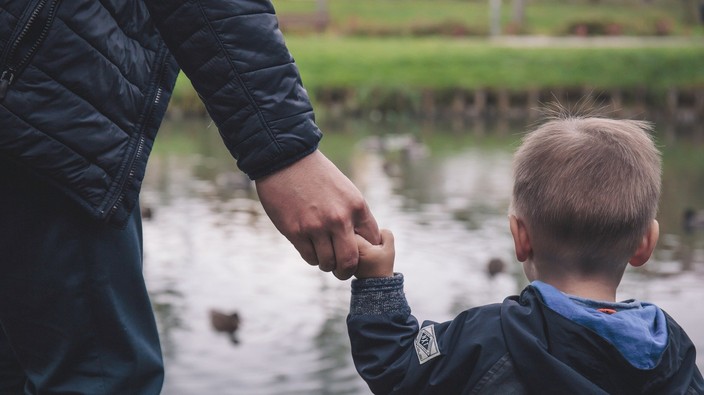throughout the covid-19 pandemic, there has been a significant amount of attention on our mental health. while organizations are compiling a wide range of
online toolkits and
templates, the impact of the pandemic on those with pre-existing mental health challenges seems to be missing from our collective conversation. although all of us are feeling more vulnerable, there are members of our community who were already struggling before physical distancing restrictions were in place.among the most vulnerable individuals are children and youth with pre-existing mental health challenges. before the pandemic, rates of mental illness and emergency department visits had been
steadily increasing. years of chronic underfunding have led to a fragmented system marked by excessive wait times and
difficulty accessing treatment.as the pandemic unfolded, my clinical work as an academic child and adolescent psychiatrist also changed. some of the families i work with are doing better, yet many are experiencing more extreme and varied struggles than they were before the pandemic hit. although the proliferation of online supports has been helpful for many individuals with mild difficulties, every young person and family is unique.
calm is contagious
although anxiety and fear can be contagious, calm is also contagious. the work of dr. bruce perry, a child psychologist and trauma expert, highlights that caregivers can help their kids regulate by modifying the strategies they use to control their own anxiety, to enhance a sense of control, predictability and moderation.alongside the many young people who are suffering, caregivers are also struggling. for many caregivers, trying to help our loved ones can be profoundly challenging when we feel overwhelmed and helpless. the most important thing we can do is to take care of ourselves. we have to put our oxygen masks on before we try to help others.
structure and sleep
enhancing control, predictability and moderation at home can be addressed through balancing structure and flexibility in daily routines. some caregivers have found it difficult to implement a routine while juggling their responsibilities.others have tried to implement routine but have been too rigid. most often, i recommend a “goldilocks” approach to structure and routine during the pandemic. avoid extremes, be easy on yourself and keep in mind that balance is everything.for example, if your child or teen is experiencing “sleep cycle reversal,” where they are up for most of the night and sleeping during most of the day, try to encourage small steps towards improving their routine. dial back the time they wake up slightly instead of making drastic changes. discourage naps during the day, encourage them to come out of their room at scheduled times or for a specified amount of time each day.be flexible and take baby steps. let them sleep in a little, and ensure that any changes are discussed, negotiated and fine-tuned to your loved one’s needs.child and adolescent psychiatrists have published some fantastic
tools that help with structure.
when existing strategies don’t work
another issue for caregivers of young people with pre-existing mental health challenges is that using existing strategies to regulate anxiety may not be sufficient. the chronic stress of the pandemic can amplify existing anxiety. many caregivers have said that tried-and-tested tools such as
paced breathing are not enough.meanwhile young people have said they are experiencing a complex mix of emotions that they struggle to describe. they want to feel better, but when existing strategies don’t seem to work, they experience a cycle of frustration, helplessness and hopelessness that leads them to feel worse.many approaches to addressing anxiety encourage us to try to reason with our emotions. these approaches emphasize how we can
fix our feelings through changing how we talk to ourselves. during the pandemic, however, there is a tremendous amount of uncertainty around things that are simply outside of our control. when we are confronted with major stress or trauma, trying to fix how we are feeling can sometimes
make things worse.
acceptance-based strategies
when encountering stressors that are significant and persistent, i encourage the families i work with to shift to acceptance-based strategies.acceptance involves being aware of your present experience so that you can accept your thoughts and feelings as valid and reasonable while working to prevent them from controlling you. for caregivers, this means accepting what you cannot control and encouraging your loved one to do the same. by accepting that the emotions we are feeling are
normal and valid given the circumstances, acceptance helps us to avoid falling into a spiral of self-blame.validating our emotions and the emotions of our kids and teens helps to prevent these emotions from taking over. when we try to ride an emotional wave, it is also natural that there will be times when these emotions may feel particularly intense or threatening. rather than try to fight them too hard or swim against the current, we can remind ourselves that we are built for resilience, wired to survive and that with every hardship comes ease.although none of us knows exactly what lies ahead, whatever comes our way, we will get through it together. for any young person or caregiver who is struggling and feels like they cannot cope, please do not forget that the mental health system is still open and here for you. please do not be afraid to reach out and ask for help.
javeed sukhera, associate professor, psychiatry, western universitythis article is republished from the conversation under a creative commons license. read the original article.don’t miss the latest on covid-19, reopening and life. subscribe to healthing’s daily newsletter coming out of covid.


 4 minute read
4 minute read





